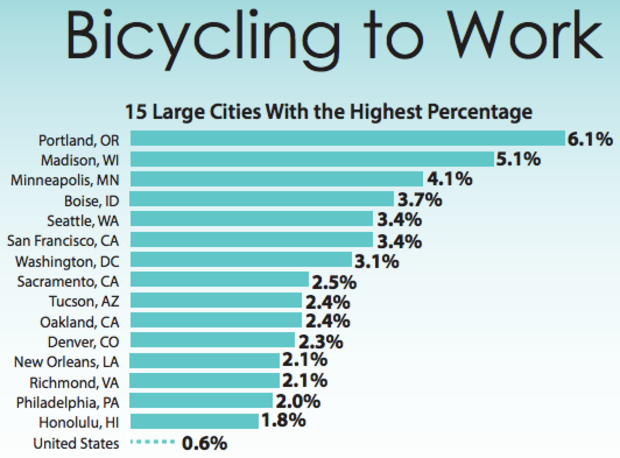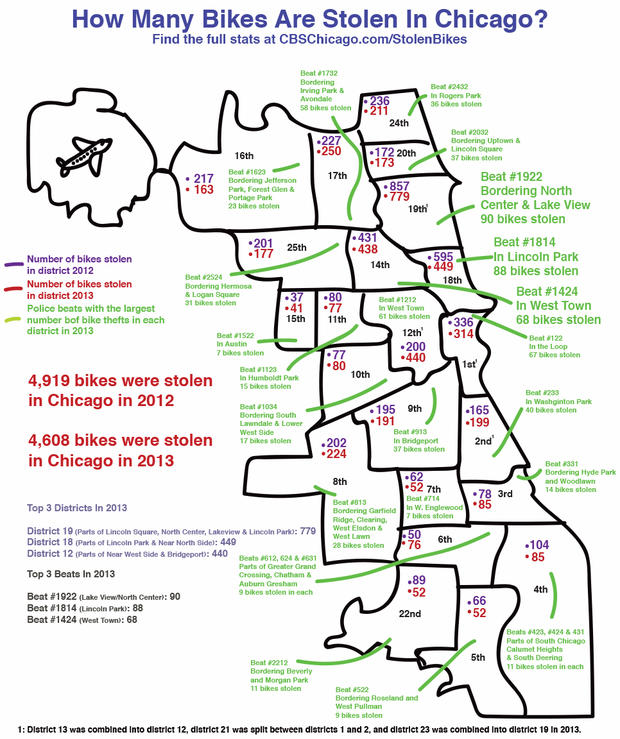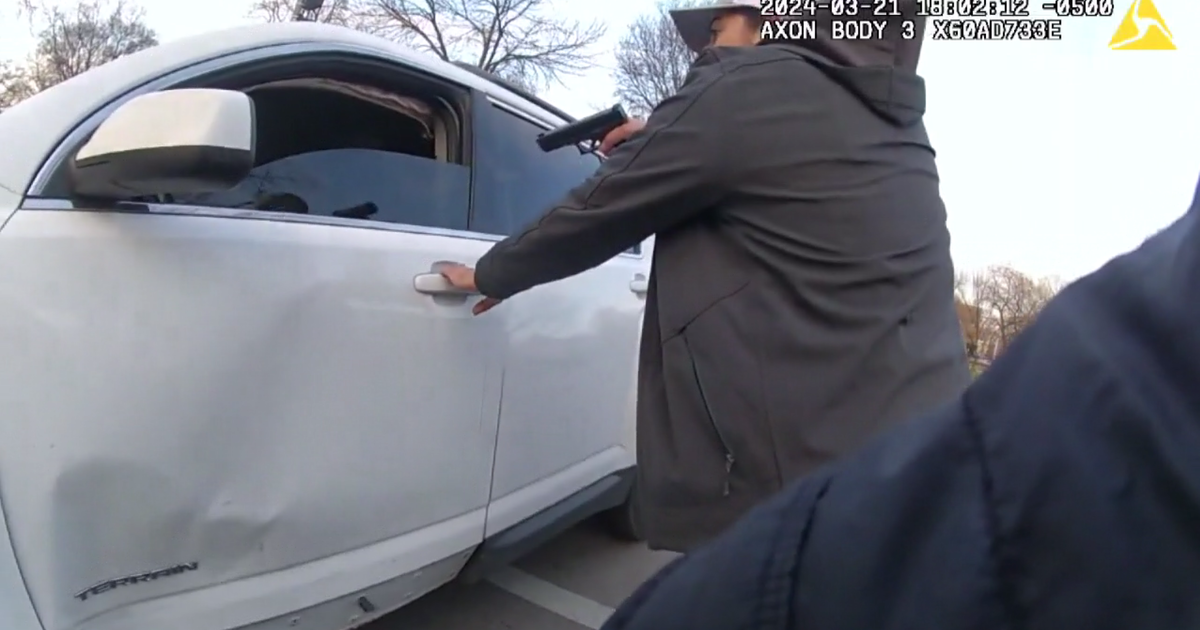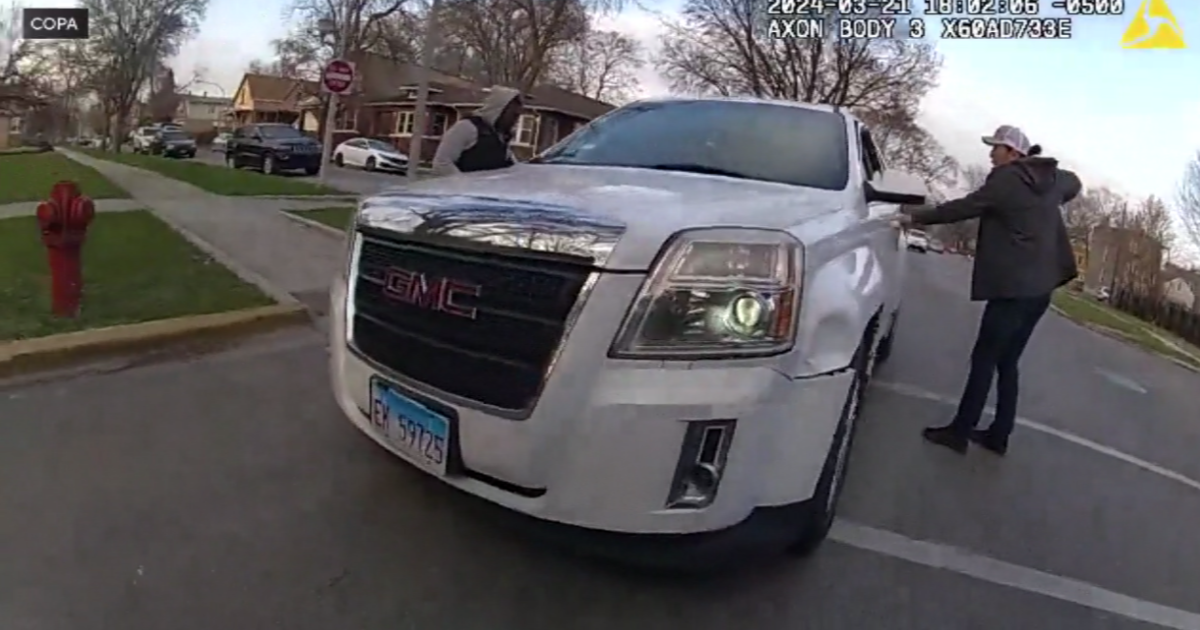The Number Of Bikes Stolen In Chicago, The Neighborhoods They're Stolen From And The Number That Are Recovered
By Mason Johnson -- This is the last installment in our series of articles on bike thefts. See past articles here.
According to the Chicago Police Department, there were 4,919 bikes reported stolen in Chicago in 2012. In 2013, there were 4,608 bikes reported stolen.
"Nothing surprises me about those figures," Nick Wright, 28, who had his bike stolen earlier this year, told me. "...except that they're not higher."
Previously, I'd been told those numbers just don't exist. But, with the proper amount of patience, paperwork and prodding (the three P's), Dave Savini and Michele Youngerman were not only able to retrieve the above numbers from the Chicago Police Department, but also the number of bikes stolen from each part of the city (sadly, these answers arrived after their report: "2 Investigators: Bike Theft Victims Band Together Online").
These numbers only represent the number of bikes reported stolen. When it comes to the number of bikes actually stolen in Chicago every year, your guess is as good as mine. Talking with 50 victims of bike theft, I found multiple people who did not make police reports. For some, their faith in police was so low they didn't see a reason to report the thefts. Others found themselves actively dissuaded to report their bike thefts by the officers they talked to, usually because they didn't have the serial number for their stolen bike.
So... Is 4,919 Bikes A Lot?
According to the Census Bureau, 1.3 percent of commuters bike to work. This is an increase from 2000, when .5 percent of commuters biked to work.
1.3 percent, which the Census Bureau pulled from 2008-2012 statistics by the American Community Survey, represents about 15,781 people (out of 1,213,901 people total commuters). It's higher than .6 percent, which is the national percentage, but lower than at least 15 other large cities, with Portland, Oregon coming in on top with 6.1 percent.
With nearly 16,000 people commuting to work on bikes, 4,919 bikes reported stolen -- nearly a third of commuters -- seems gigantic. But, as I pointed out with the number of reported stolen bikes above, this number most likely isn't accurate. The survey that came to 1.3 percent concentrated on people who claim biking as their main form of transportation. Someone who only rides their bike on the weekends or drives to work four days out of the week and bikes one day out of the week, would not be counted in that percentage, despite the fact that they bike regularly. The survey also seems skewed to individuals who work 9 - 5s and bike on high-traffic roads downtown, which may similarly leave some bike enthusiasts out.
Still, the number of bikes reported stolen and the number of people commuting to work on bikes, despite their flaws, does clue us in on the severity of the issue. An issue that will continue to grow as Mayor Emanuel's "Chicago Streets for Cycling Plan 2020," which has been underway for the past two years and calls for a 645-mile network of biking facilities by 2020, continues to roll out across the city. Especially considering that his plan does not include any direct preventative efforts regarding bike thefts.
The Neighborhoods Bikes Are Stolen From
The stats CPD's Research and Development department sent us were broken down by police districts and beats, neither of which conform to our traditional definitions of Chicago neighborhoods (which are admittedly convoluted), but we can use these numbers to get a pretty good picture of bike theft across the city.
Districts are large. They can contain multiple community areas (the term for official, city-designated neighborhoods), which themselves can contain multiple small neighborhoods (Bucktown, for example, is a neighborhood within the community area of Logan Square). Community areas can also be shared between multiple police districts (Humboldt Park exists in four different districts). A district also tends to have, on average, about a dozen police beats (some have more, some have less).
While police districts don't change often, there were three major changes that went into effect in 2013. District 13 was combined into District 12, District 21 was split between District 1 and District 2, and District 23 was combined into District 19.
Because of this, I used 2013's bike theft report numbers when ranking districts, beats and neighborhoods, since that would better reflect the city as it is today (there have been no major changes since).
With all of that out of the way, the top bike theft spots are as follows...
Top Three Police Districts For Bike Thefts
District 19, which contains parts of Lincoln Square, North Center, Lake View and Lincoln Park, had 779 bike thefts in 2013.
District 18, which contains parts of Lincoln Park and Near North Side, had 449 bike thefts in 2013.
District 12, which contains parts of Humboldt Park, East Garfield Park, West Town (Wicker Park, a popular place for bikes, is in West Town), Near West Side and Bridgeport, had 440 bike thefts in 2013. (NOTE: The combination of District 12 and District 13 would account for what seems like -- but isn't -- an enormous rise in thefts between 2012 and 2013.)
Top Three Police Beats For Bike Thefts
Beat number 1922, which is on the border of Lake View and North Center, had 90 bike thefts in 2013.
Beat number 1814, which is in Lincoln Park, had 88 bike thefts in 2013.
Beat number 1424, which is in West Town, had 68 bikes stolen in 2013.
Some Of The Top Neighborhoods
Because community areas and beats can be spread across more than one district, it's difficult to get the exact number of reported stolen bikes per neighborhood. We can approximate though.
While the North Side seems to take the cake for reported bike thefts, the West Side's West Town, which contains neighborhoods Wicker Park, Ukrainian Village and Humboldt Park (the neighborhood, not the larger community area that's slightly farther to the West – yes, Chicago is really this confusing), had about 400 bike thefts in 2013 (for this, I used police beats 1423, 1424, 1433, 1211, 1212, 1213, 1214, 1215 and 1221).
Lake View, which contains Boystown and Wrigleyville (among other neighborhoods), had 399 reported bike thefts in 2013 (police beats 1922, 1923, 1924, 1925, 1933 and 1934).
Lincoln Park had 343 reported bike thefts in 2013 (police beats 1932, 1935, 1811, 1812, 1813 and 1814).
The Loop had 236 reported bike thefts n 2013 (111, 112, 113, 114, 122, 123).
Is This Surprising?
To bike theft victims, the fact that these neighborhoods have a lot of bike thefts isn't surprising.
"The neighborhoods you listed aren't surprising..." Wright commented, going on to point out that these are affluent neighborhoods with young professionals who can afford expensive bikes. "Most of the bike shops that sell higher-end bikes are in those neighborhoods, too... These shops don't sell Roadmasters and Huffys. They're carrying Trek, Specialized, Cannondale, All City, Surly, Giant and so on. Nice bikes."
The Number Of Bikes Recovered
Out of the 4,919 bikes reported stolen in 2012, 4,647 of those investigations were suspended. Out of the 4,608 bikes reported stolen in 2013, 4,306 of those investigations were suspended.
What does "suspended" mean? According to the Chicago Police Department, it means all available investigative leads have been exhausted and the investigation is suspended until further leads are available. Basically, they threw in the towel.
According to Wright, who had to pose as a buyer and set up a meeting with the thief who stole his bike before police would get involved, "... cops don't go after stolen bikes—they've got bigger fish to fry."
For the Chicago Police Department, it's easy to argue that the resources just aren't there. Why should the police spend time and money finding what is a relatively inexpensive item that can be difficult to track down (when the thief isn't stupid enough to post it online, that is)?
With that said, some bike theft victims have complained that Chicago cops won't even follow up on leads that could easily help them recover their bikes, and have even occasionally asked the victims to do some of the investigating themselves. While it might be understandable to give CPD some slack when it comes to a stolen bike that could literally be anywhere, it's more difficult to excuse their inability to help when the bikes in question turn up on Facebook or Craigslist, at a local flea market like Swap O Rama (notorious for stolen bikes) or happens to be sitting in one of the city's many pawn shops.
How many cases were "cleared," which is to say, how many cases were solved?
246 in 2012 and 291 in 2013, or about 5 percent and 6 percent respectively. Though it's difficult to tell who did the footwork in those cases, the Chicago Police Department, or the bike enthusiasts who've had to become adept at retrieving stolen bikes.
To round out our totals, there were 26 cases in 2012 and 11 cases in 2013 that didn't seem to get investigated. Some of those cases never made it to the right bureau, some never made it to a detective, others are still, for some reason, despite being a year or two old, classified as "under investigation."
If, after two years, you're still holding out hope that your bike will turn up, I have some advice: Give up. It's time to move on with your life, friend.
What Do These Numbers Tell Us?
Firstly, while numbers seem like an objective witness, they can be easily manipulated to say whatever an author wants. So you should feel free to look at the raw data here, maybe take a peek at our other bike articles that focused on testimonies from bike theft victims, and draw your own conclusions.
For me, these numbers don't illuminate anything new or surprising. They confirm what many bike enthusiasts felt they already knew: a lot of bikes are stolen, few are retrieved. Combined with individual accounts of police apathy toward stolen bikes, and it sends the clear message that the Chicago Police Department just doesn't care. It's easy to say, "Well, they're dealing with more important things, like, you know, violence." For some, this answer isn't sufficient. While the department's attitude toward bike thefts can only serve as proof that they do little to protect people from having their bikes stolen, it's difficult not to ask, "What other crimes are they overlooking?"
For my last few words, I want to address bikers directly:
Know how to protect your bike, know what to do if it's stolen, know that other bikers in Chicago will have your back if your bike is stolen.
Which is good, since the Chicago Police Department won't.
Mason Johnson is a Web Content Producer for CBS Chicago. You can find him on Twitter.





